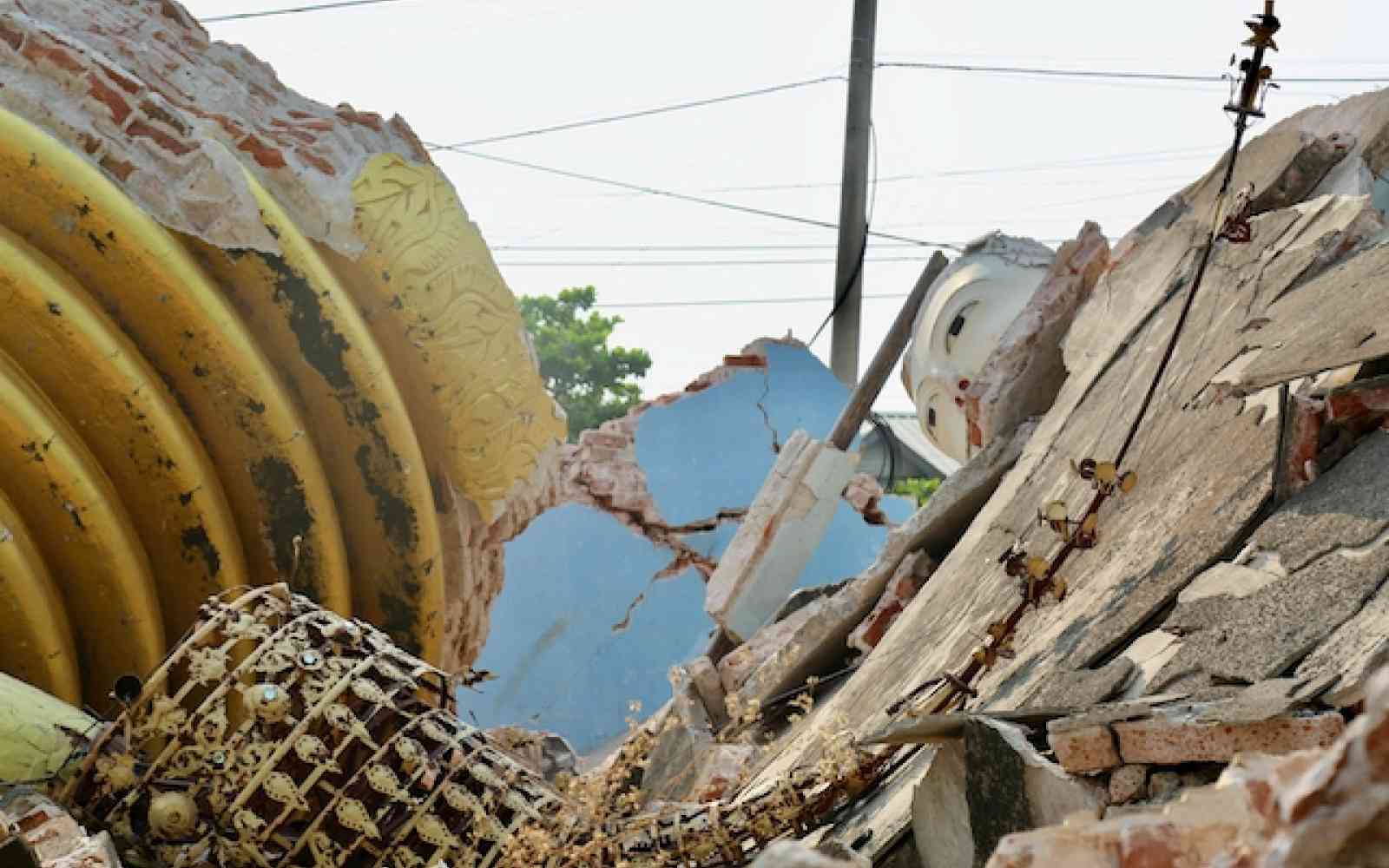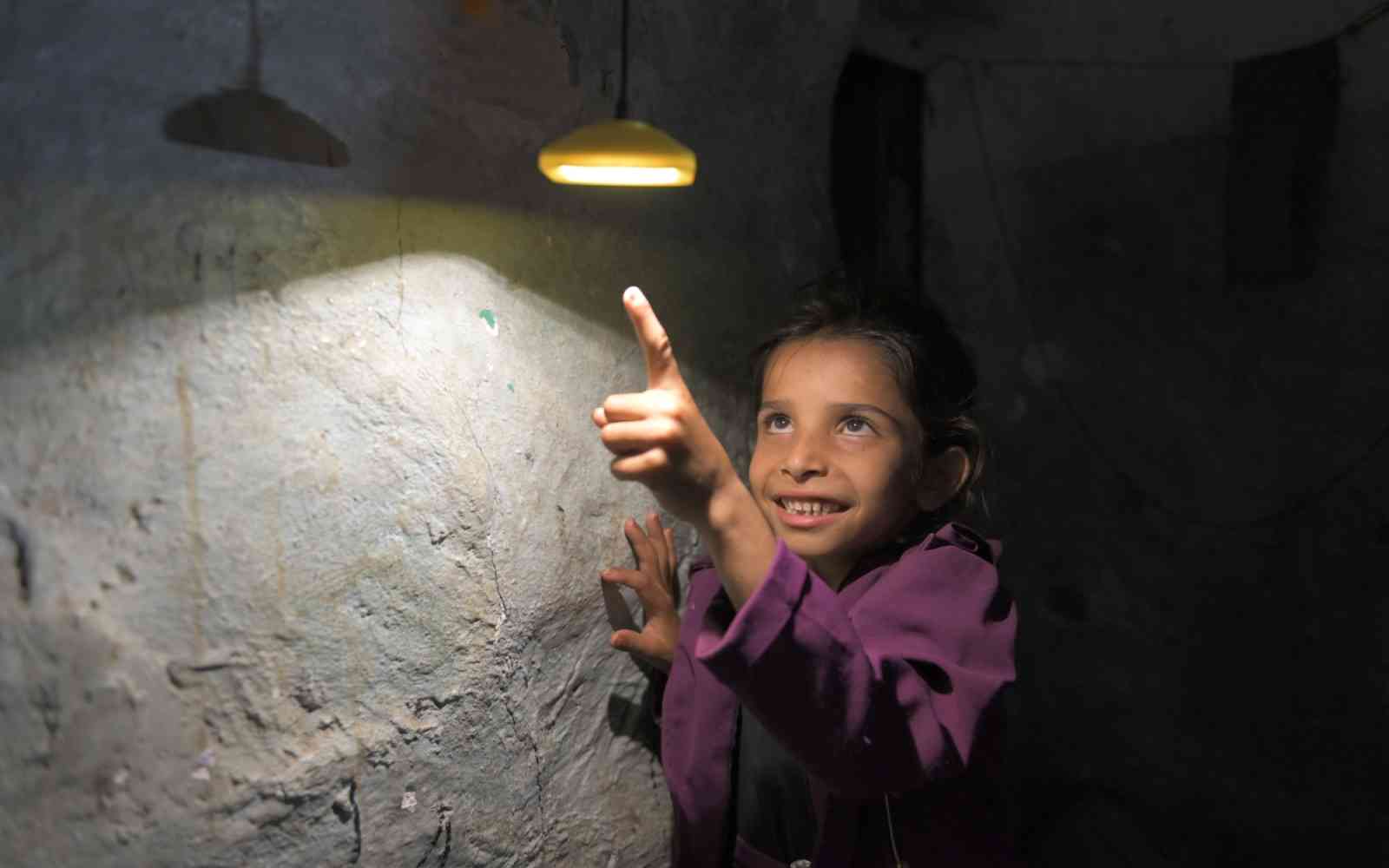The United Nations Office for Project Services (UNOPS)

A home away from home
Behind the scenes: personal stories from temporary settlements in Jordan and Iraq
While Europe struggles to find homes within its borders for those fleeing violence and persecution, countries closer to Syria are already sheltering millions.
Beyond the devastation, regional neighbours are coming together to shoulder a burden of care; one that goes beyond basic services to offer people a chance of a more purposeful life.
Here are some of their stories.
Za’atari Camp

Located east of the city of Mafraq in northern Jordan, Za’atari Refugee Camp opened in July 2012, and is now home to around 80,000 refugees, many of whom come from Dara’a in south-west Syria.
With nine schools and two more on the way, a large market area and community police, Za’atari residents have a range of services to call on.
Aisha
Aisha Fawaz Hariri is 38 years old and from Dara’a. She arrived in Za’atari in 2013 with her husband and three kids. Aisha is now an assistant teacher in the camp, helping to bring in extra income for her family.

In class, children work on a range of topics.


Mohammed
Many assistant teachers are residents of the camp. After his home was bombed, Mohammed El Saadiin fled Dara’a and arrived in Za’atari in 2013, with his wife and seven children. Mohammed is now an assistant teacher at the boys’ school.

The Hoshan family
Many assistant teachers are residents of the camp. After his home was bombed, Mohammed El Saadiin fled Dara’a and arrived in Za’atari in 2013, with his wife and seven children. Mohammed is now an assistant teacher at the boys’ school.



Azraq Camp

The world’s largest planned refugee camp, Azraq, began accepting Syrian refugees in April 2014, when Za’atari reached full capacity.
Located east of Amman, across a 15-kilometre stretch of rocky desert, Azraq is home to more than 50,000 people. Each of the camp’s four villages can house between 10,000 to 15,000 refugees.
At full capacity, Azraq is able to shelter 130,000 people.


RUBA
Security in the camp is provided by the Jordanian authorities. Lieutenant Ruba Mohammed El Abaid has worked as a police officer in Jordan for 18 years. She is now a community police captain in Azraq, where she oversees the female community police presence, and works closely with women refugees in the camp.

Residents face a range of challenges. Ruba’s job helps to address the concerns of residents, particularly those of women living in Azraq.
"The main cases I see are women and families wanting to apply for voluntary return, wanting intervention for early (childhood) marriage; and worries about children not attending schools."
Isa
Isa Hassan has been at Azraq since May 2014. He used to work as used-car dealer in his hometown of Dara’a, but since arriving in the camp has taken on the role as a community leader. He takes pride in his role as mentor and friend to many camp neighbours and extended family members in Azraq.

Harsham Camp

Harsham Camp in Erbil, in the Kurdistan Region of Iraq, is home to close to 1,500 internally displaced Iraqis, most of whom fled from Mosul in 2014.
Samir
Samir Saleh has been at Harsham since 2014. He came with his wife and five children from a village just outside Mosul, where he used to work as a stone mason.

In Harsham, solar lighting has been installed throughout the camp, as well as mobile charging devices that serve as individual light sources for each family.
"They [my children] feel safe here too because of the solar lights. My wife used to step on snakes outside in the dark, but now she can go outside without fear."


Who does what?
This article covers a number of different initiatives. All individuals detailed who have found work have been supported by cash-for-work programmes with UN agencies and NGO's. Below are some of those helping.
Za'atari and Azraq camps in Jordan
Camp management: Government of Jordan and UNHCR
Camp security: Government of Jordan/Syrian Refugee Affairs Directorate (SRAD)
Cash-for-work programmes: UN agencies and NGOs (including UNOPS)
Other supporting partners include:
Za'atari - SRAD, ACTED, Bab Al Amood, CBM, FCA, FPSC, Handicap International, ICRC, IMC, IOM, IRC, IRD, JEN, JHAS, KSA, LWF, MDM, Mercy Corps, Nour Hussein Foundation, NRC, Oxfam, Qatar Red Crescent, Questscope, Relief International, Royal Police, SC International, SC Jordan, UN WOMEN, UNFPA, UNHCR, UNICEF, UNOPS, WFP, WVI.
Azraq - SRAD, Ministry of Public Works and Housing, Ministry of Health, Ministry of Education, ACF, ACTED, CARE, Finn Church Aid, Handicap International, ICRC, IMC, IOM, IRC, Mercy Corps, NRC, Questscope, REACH, Relief International, Save the Children, UNFPA, UNHCR, UNICEF, UNOPS, WFP and World Vision.
Harsham IDP Camp in Iraqi Kurdistan
Camp management: ACTED
Solar lighting: UNOPS, in support of the Governments of Canada and Japan
Other supporting partners include:
Erbil Refugee Council (ERC), ACTED, Barzani Charitable Foundation, CFS, UNFPA, UNICEF, UNHCR, and WFP.













